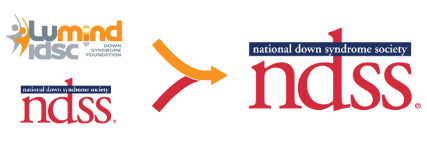EXAMINING ADULTS WITH NEUROATYPICAL CONDITIONS FOR MCI/DEMENTIA DURING COGNITIVE IMPAIRMENT ASSESSMENTS: REPORT OF THE NEUROATYPICAL CONDITIONS EXPERT CONSULTATIVE PANEL
July, 2022
Project Principals: Matthew P. Janicki, PhD, Jim Hendrix, PhD, Philip McCallion, PhD
The early detection and accurate diagnosis of Alzheimer’s disease as part of the Affordable Care Act’s annual wellness visit is challenging in most cases. It is particularly challenging when the patient has a neuroatypical condition such as an intellectual disability (i.e. Down syndrome). The Centers for Disease Control and Prevention (CDC) estimates that about one in four noninstitutionalized adults (25.7%; 61.4 million persons) has some type of disability or impairment. To address this need, the National Task Group on Intellectual Disabilities and Dementia Practices and the LuMind IDSC Foundation convened the Neuroatypical Conditions Expert Consultative Panel made up of 21 experts in a wide range of neuroatypical conditions. Read their report here. Read the article about the report published in Alzheimer’s & Dementia: Diagnosis, Assessment & Disease Monitoring here.
Detection of any cognitive impairment as part of the Affordable Care Act’s annual wellness visit in primary or other health care settings for adults with pre-existing neuroatypical or neurodivergent conditions (NACs) is challenging. Included here are common adult conditions that affect normative intellectual development and function (such as intellectual disability (ID) and ID with conjoint psychiatric condition), thought, moods, and cognition (such as severe mental illness), communication functions (such as conditions on the autism spectrum and hearing/vision impairments), and brain and motor function (such as cerebral palsy and acquired or traumatic brain injury).
Current federal guidance for the assessment of cognitive impairment for MCI or dementia do not include information as how to assess such adults. A Neuroatypical Conditions Expert Consultative Panel was tasked with identifying barriers and the special needs and adaptations for examination of adults with NACs. The Expert Panel determined that adults with NACs (1) posed various challenges for clinicians when discriminating current behavior and function from that which was pre-existing; (2) presented issues related to inherent comprehension, oral communication difficulties, motor task performance impediments, or recognition of visuals; and (3) complicated testing when standardized dementia assessment measures were used and benefited from specialized instruments.
Adults with NACs present with varying degrees of risk for dementia. To increase the accuracy rate in the assessments, clinicians should be more aware of how older age affects each of the NACs, be familiar with expectations for cognitive decline and risk of dementia (and what type) and be facile with adapting testing situations and measures. Expert Panel recommendations included (1) broadening federal guidance to include adaptations of assessment practices to accommodate NACs; (2) enhancing education for clinicians about NACs and how to detect and diagnose MCI or dementia; and (3) expanding research to produce more evidence-based information on assessing NACs for later life adult cognitive diseases/disorders and for planning subsequent post-diagnostic care.
